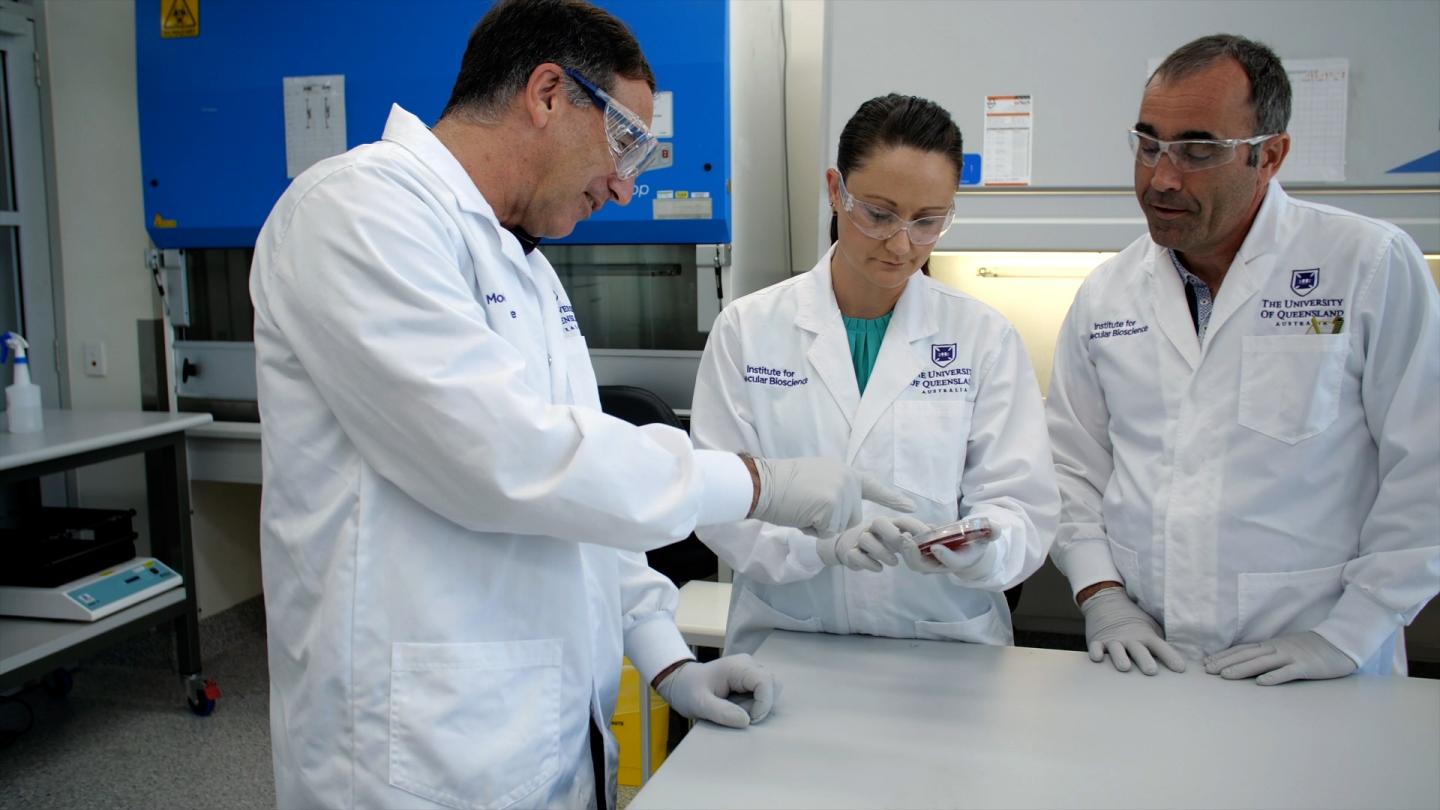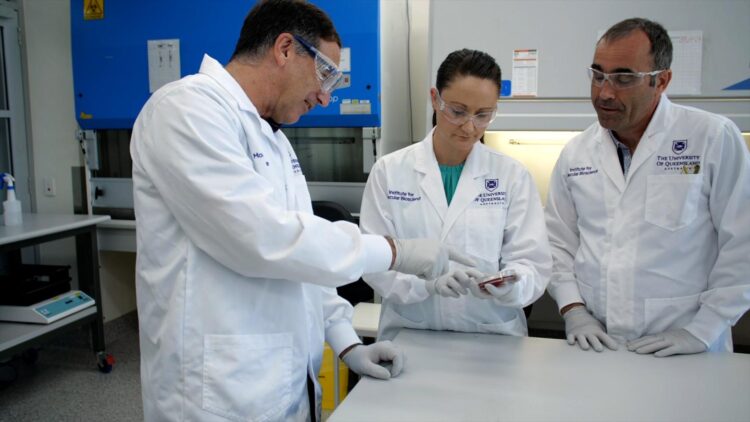Holding off the rise of superbugs could be achieved by ‘resuscitating’ old antibiotics.

Credit: Institute for Molecular Bioscience, UQ
Holding off the rise of superbugs could be achieved by ‘resuscitating’ old antibiotics, with The University of Queensland researchers leading an international project to help combat the growing threat.
CARB-X, a global non-profit partnership funding the world’s largest antibacterial development pipeline, has funded the $AU2.9m project at UQ’s Institute for Molecular Bioscience (IMB).
Associate Professor Mark Blaskovich, Dr Alysha Elliott and Dr Johannes Zuegg will assess which antibiotics that are losing their effectiveness could be revived by combining them with a compound from a new family of antibiotics.
“We are running out of time to outsmart the most dangerous drug-resistant bacteria, the sort of infections that can cause deadly bacterial sepsis, pneumonia, urinary tract and wound infections,” Dr Blaskovich said.
“Compounds from a group known as the Octapeptins could be the spark the older drugs need to reinvigorate them as they act to disrupt the bacteria’s cell membrane–making it easier for the antibiotic to gain access.”
Dr Elliott said these ‘potentiators’ had been shown to help some antibiotics regain their activity against bacteria which have developed high levels of drug resistance, and reduce the amount of the antibiotic required to effectively kill bacteria by up to 100-fold.
“The benefit is that we can potentially restore the use of cheap generic antibiotics that are widely used in low and middle income countries, where there are high levels of drug-resistant bacteria,” Dr Elliott said.
“We will also share our expertise and technologies with researchers in countries such as Pakistan, Nepal, Egypt, Nigeria, Brazil, Thailand and Indonesia so they can genetically sequence resistant bacteria strains in real-time as they emerge.”
Dr Blaskovich said resistance to current antibiotics was increasing at an alarming rate, highlighting the urgent need for innovative solutions.
“With time of the essence, we are appreciative of the support of CARB-X to accelerate UQ’s IMB Centre for Superbug Solutions’ many-pronged attack on this global threat to human health,” Dr Blaskovich said.
###
The current project builds on the first Australian and first University CARB-X award to the Centre for Superbug Solutions in 2020 to develop the Octapeptin class as a stand-alone antibiotic treatment, led by Prof Matthew Cooper and Dr Karl Hansford along with Dr Blaskovich.
CARB-X receives its funding from the US Biomedical Advanced Research and Development Authority (BARDA), the Wellcome Trust in the UK, Germany’s Federal Ministry of Education and Research (BMBF), the UK Global Antimicrobial Resistance (AMR) Innovation Fund (GAMRIF), and the Bill & Melinda Gates Foundation. Funding contributions by GAMRIF are earmarked by CARB-X to fund projects that focus on specific antibacterial priorities, and the UQ IMB Octapeptin LMIC project is one such project. GAMRIF funding allocated to CARB-X is focused on innovative research and development in the field of AMR, specifically in underinvested areas for LMICs, where the burden of AMR is greatest.
VIDEO:
https:/
Media Contact
Dr Jane Ilsley
[email protected]
Original Source
https:/





